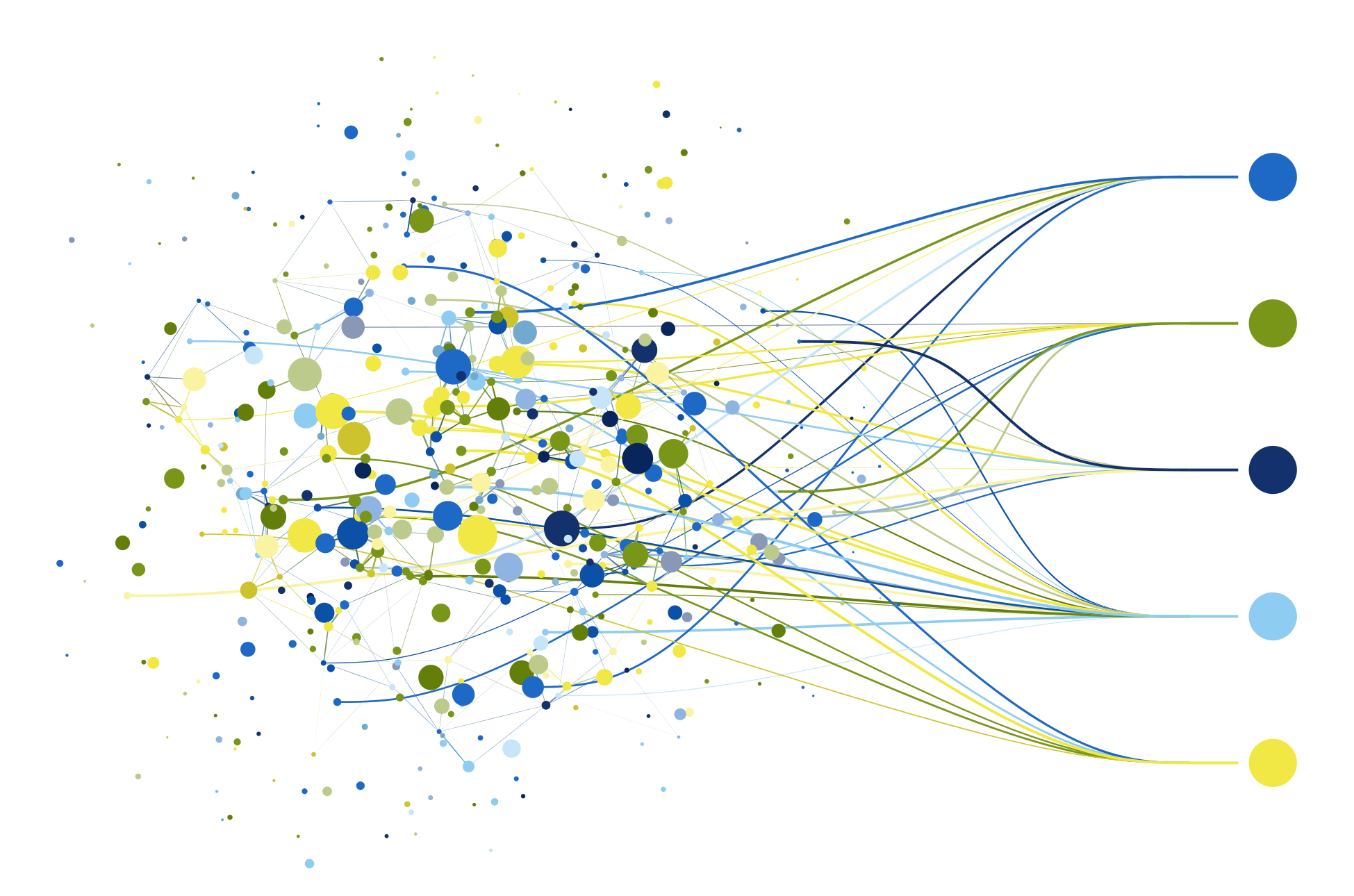Bachelor Computational Sciences

The Bachelor in Computational Sciences (BaSC) constitutes the first part of a basic education. It aims to provide a multidisciplinary education that will enable students to meet future scientific and societal challenges related to the expansion of computer science with other disciplines in the natural and social sciences. This course is based on two fundamental foundations. The first is learning the methodological tools essential to the mastery and use of computer sciences: mathematics, scientific programming, modeling, analysis and representation of massive data. The second is based on the knowledge and in-depth understanding of an application domain in which computer science plays an essential role. The specific study plans for each application area are as follows
- Bachelor in Computational Sciences concentration in Biology (BaSC-Bio): Biology and Computer Science offer a joint curriculum focused on the emerging field of computational biology that involves the development and application of data analysis methods, theoretical approaches, mathematical modeling, and digital simulation techniques to study complex biological systems. The interdisciplinary curriculum provides a strong foundation in applied mathematics, statistics, physics, molecular biology, genetics, genomics, evolution, and computer science/programming to enable future graduates to address research and development challenges and opportunities at the interface between computer science and the life sciences. This new program responds to the growing needs in this multidisciplinary field in academic research and industry (pharmaceutical field, software development, bio-inspired robotics, comparative genomics ...).
- Bachelor in Computational Sciences concentration in Earth and environmental sciences (BaSC-TerrEnv): Responding to current and future environmental and societal challenges requires the development and rapid implementation of novel approaches for sustainable development and adaptation of our societies to global changes. In this context, the modern geosciences expert is able to mobilize a variety of scientific and technical cross-disciplinary skills in order to make the best use of the constant flow of new Earth and environmental observation data, and the increasingly sophisticated computer tools that allow their analysis. The BaSC-TerrEnv orientation prepares the future actors of a sustainable future capable of using all the modern tools in the service of understanding and conserving the environment,
- Bachelor in Computational Sciences concentration in Chemistry and Biochemistry (BaSC-BioCHIM): Artificial intelligence, data analysis, numerical modeling... The explosion in computing capacity over the last few decades has opened up a host of new possibilities for chemists and biochemists. These computational methods offer unprecedented precision for understanding the molecular world and exploring crucial areas of chemistry and biochemistry, sometimes difficult to study by traditional experimental means. By going beyond the limits of the laboratory, these methods have paved the way for applications such as:
- Prediction of molecular and protein structures with increased precision, facilitating the design of new drugs and materials.
- Simulation of reaction pathways and chemical mechanisms, to shed light on the complex processes involved.
- Interpretation of complex analytical data, extracting information that would otherwise be inaccessible.
The chemistry/biochemistry orientation, the first program of its kind in Switzerland, enables students to acquire dual expertise in computational sciences and chemistry/biochemistry. This combination prepares students perfectly for research and innovation in the field of computational chemistry and biochemistry. This field has been booming for the past two decades, and is set to grow exponentially in the years to come, with applications as varied as health, energy and the environment.
PRESENTATION (French)
STUDY PROGRAM
Course methodology / 90 ECTS credits
- Mathematics, numerical analysis, probability and statistics
- Scientific programming (algorithms, Python, C++, parallelism, GPU)
- Data science (data structures, information theory, data mining, AI, data representation)
- Modeling (complex systems, natural phenomena)
One field of application to choose from / 90 ECTS credits
- Biology : Basic biology, genetics, animal physiology, biochemistry, general physics, animal and plant development, bioinformatics, evolution, molecular biology, etc.
- Earth and Environmental Sciences: Structural geology, geophysics, geo-data, geomatics, volcanology, environmental chemistry and biochemistry, ecology, etc.
- Chemistry-biochemistry: General chemistry, organic chemistry, biochemistry, chemical physics, analytical chemistry, etc.
Academic opportunities
Obtaining a Bachelor's degree in Computational Sciences allows access to the second course of study of the basic education, i.e. the studies for a Master's degree in Computer Science or in the field of the chosen orientation and subject to the admission requirements specific to the Master's degree applied for.
- The concentration in biology allows access to the following courses:
- Master's degree in biology with a free or targeted orientation
- Interfaculty Master's degree in neuroscience (upon application)
- Master in chemical biology (upon application)
- Master's degree in biomedical sciences (upon application)
- The concentration in Earth and Environmental Sciences allows access to the following courses:
- Master in Environmental Sciences (MUSE)
- Master's degree in Earth Sciences (joint in the framework of ELSTE)
- The concentration in chemistry and biochemistry allows access to the following courses:
- Master in chemistry
- Master in biochemistry
